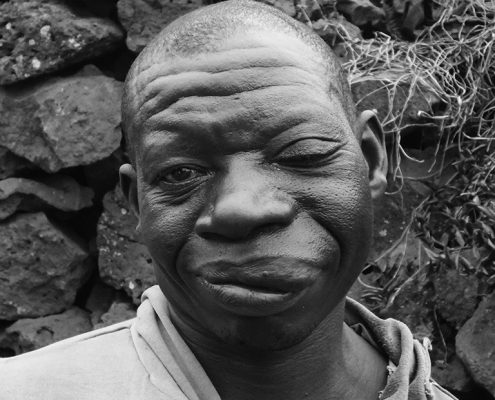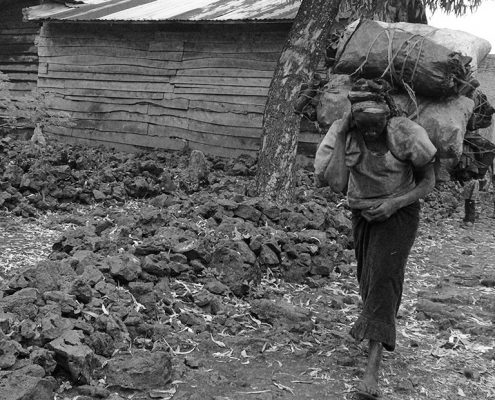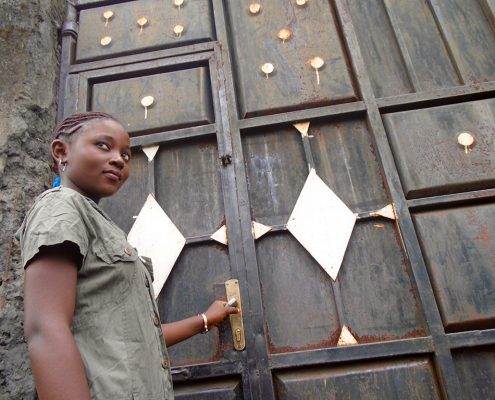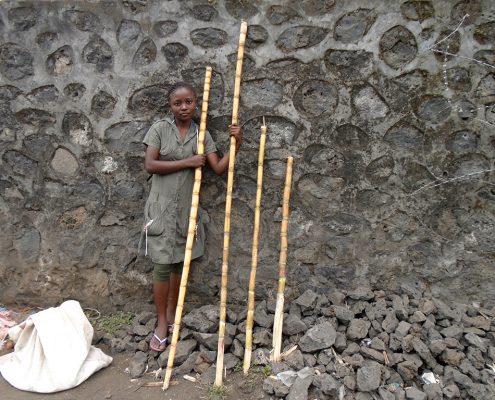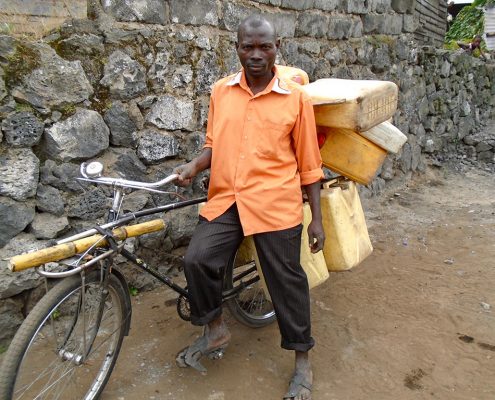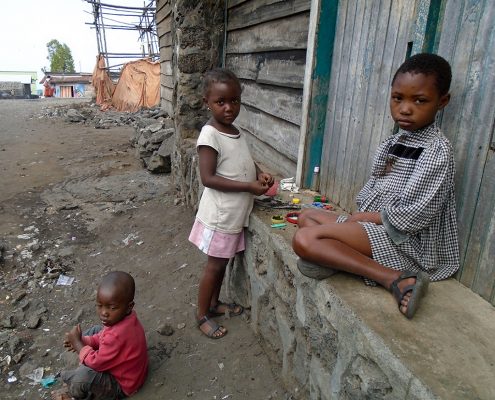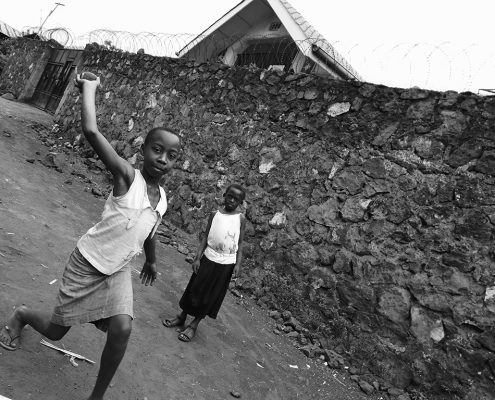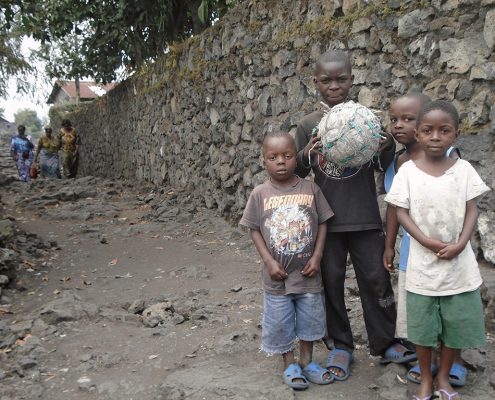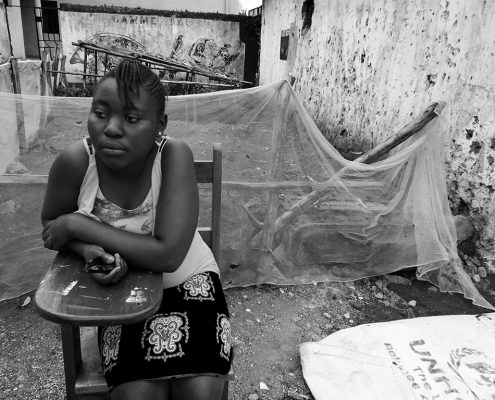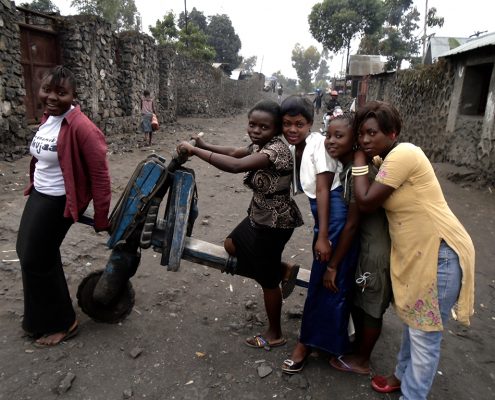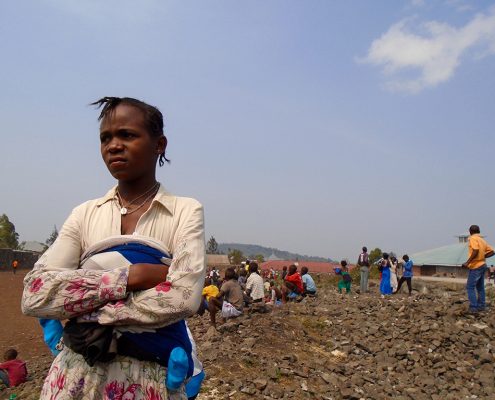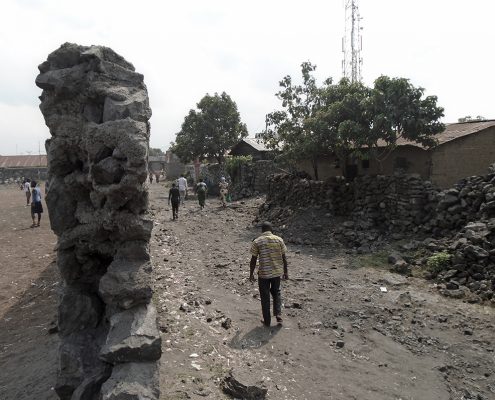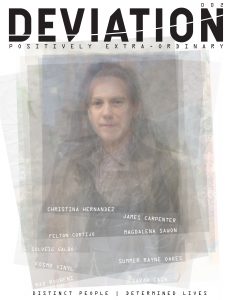Sam & Jack Powers: Deviant Relief
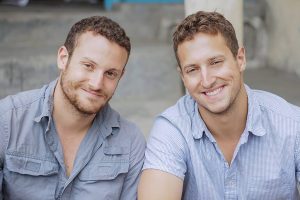 By Ash Hoden
By Ash Hoden
Earlier this year brothers Sam and Jack Powers decided to spend their vacation time in the Democratic Republic of Congo — the city of Goma to be precise. Initially they thought northern Iraq but, you know, ISIS. They’ll be revisiting that thought next year. Things have quieted a bit, but Goma is no stranger to conflict either. To quote a May 2016 article in The Atlantic: “Since 1996, it’s been besieged, ransacked, inundated with refugees, and leveled by a volcanic eruption. Around a million Rwandans showed up on the city’s doorstep after the country’s 1994 genocide. … It’s a city built by conflict, a place that 20 years of warfare has churned into a mostly-impoverished chaos of ethnicities and nationalities, helpers and profiteers.” Nearly all of the helpers in Goma work for top-heavy international organizations, such as the UN. They can be seen racing through town in expensive, kitted-out Land Cruisers, which can lead one to ponder just how far is the divide between helper and profiteer. Not so with Sam and Jack, who preferred to get around by motorcycle taxis and tried to stay in a hostel until they discovered that it was a brothel. They are fully on the helper side of that equation.
“The idea of a country needing help and not being on the front page of the paper — like Iraq is because of ISIS — was definitely a factor that pushed us to look into [the DRC] more and more,” Sam says. Prior to arriving they contacted CAMME (http://cammedrcongo.org/) an underfunded grassroots organization in Goma that provides care, education, and vocational training to “children living on the street, newly demobilized child soldiers, victims of sexual violence, orphans, and others.” Sam and Jack’s concept: coordinate with CAMME to work with ten children, teaching them about photography before turning them loose with cameras and letting them share their story in a new way. “They’ve come into this organization as a safe zone, not having any tangible professional skill set because they’ve been worrying about basically eating for their entire youth. So all of a sudden to hold a $150 camera and take photos is definitely exciting for them, at the least.” Photos created by these ten children will soon be shown in a New York gallery with all proceeds going to CAMME. The Powers brothers also donated cameras and a computer for the children’s ongoing use. “Liaising with a very small, nascent NGO on the ground allows us as teachers, not only to teach the skill, but to actually leave money in the hands of those who need it most,” explains Sam.
This tactical approach to humanitarian assistance benefits from the intimacy of operating at the microlevel — two brothers directly engaging with ten children. As Jack tells it: “That seemed to be the biggest difference — being so close to the kids we were working with and being on the ground, to put it bluntly, as white people (or Mzungu, as they are dubbed in Swahili). Locals are so used to the only [white] foreigners being there in jacked-up trucks and speeding through all of these neighborhoods. Not really getting out and talking to people and meeting people, and actually learning about what the people think. People were kind of confused. Why are these guys here? And in these back roads? And actually contributing something? Or trying to at least. Because you see the Red Cross, you see the UN, you see all these big, beefy NGOs and it’s kind of confusing to think about, ‘If I were to contribute, where would that contribution go?’”
“Jack and I aren’t really developmental theorist experts, you know. We were like, ‘Yeah, guys, here’s some loose leaf paper. Just write what you feel.’ I mean there’s probably some larger developmental theory that makes it illegal for some random person to ask someone to write their life story, but it worked. It was almost like unintentional therapy. I think if we could replicate it at scale it could really impact small marginalized communities throughout the entire world. It’s something that will evolve organically and will evolve because Jack and I have spent a lot of time in this world — in nonprofit, photography, and international travel.” Jack currently works at a non-profit doing youth development. Sam once worked for the same organization. Both had previously traveled in Africa, among other places, but this was their first time in the DRC. Their father is a film director and their late mother owned a photography gallery. Cameras have been a major part of their lives since birth and they learned to use them at a young age. Now, by sharing that knowledge they are looking to improve the lives of some of the most marginalized children on earth.
Get Deviation Issue 002 (Print or Digital)
[fbcomments width="100%" num="10" ]


